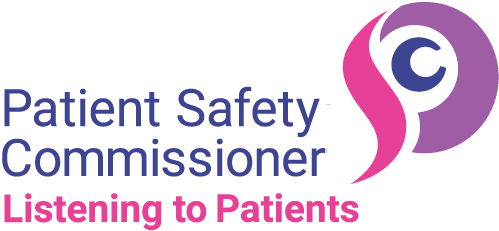143 sites sign up to Martha’s Rule

NHS England has announced the 143 sites that will role out Martha’s Rule in its first year. The 143 sites will be part of the first phase of the programme which will be in place by March 2025.
NHS England is working with Martha’s parents to develop materials to advertise and explain the initiative in hospitals across the country, to ensure it is something that all patients, staff, and their families can recognise.
The Patient Safety Commissioner said: ‘I welcome the announcement from NHS England about the large number of sites that have signed up to Martha’s Rule. This will provide us with a good base on which to evaluate the initiative and help to ensure the national rollout.’
Martha’s parents Merope Mills and Paul Laity said: ‘We are pleased that the roll-out of Martha’s Rule is off to a flying start and that the need for it has been so widely recognised. It will save lives and encourage better, more open, communication on hospital wards, so that patients feel they are listened to, and partners in their healthcare.’
Professor Sir Stephen Powis, NHS national medical director, said the new initiative was ‘one of the most important changes to patient care in recent years’.
Background to Martha’s Rule
The former Secretary of State Steve Barclay asked me to run a series of policy sprint meetings to set out what would make Martha’s Rule a success in England. We have now conducted four policy sprints with system leaders to develop a set of recommendations for Martha’s Rule. These recommendations will support the views and voices of patients, families, and carers to be central in their care. We are recommending that all staff have access to a 24/7 escalation route for rapid review of acute in-patients and that this route must also be available to patients, their families, carers and representatives. This is Martha’s Rule.
We would like to thank everyone who took part in these policy sprints, particularly Martha’s parents, Merope and Paul, and Polly Curtis, the chief executive of Demos, who engaged in a collaborative way to finalise the recommendations for the Secretary of State. Because of the approach of everyone involved, both within the sprint meetings and other engagement, we have learnt how we can work collaboratively, inclusively, and helpfully to change the culture of the health service and reduce the risk of severe harm to patients. In summary, they are:
- we must implement a structured approach to obtain information relating to a patient’s condition directly from patients and their families at least on a daily basis. In the first instance this will cover all in-patients in acute and specialist Trusts.
- all staff in those Trusts must have 24/7 access to a rapid review from a critical care outreach team who they can contact should they have concerns about a patient.
- all patients, their families, carers and advocates must also have access to the same 24/7 rapid review from a critical care outreach team which they can contact via mechanisms advertised around the hospital and more widely if they are worried about the patient’s condition.
Martha’s Rule oversight group begins work
The new Martha’s Rule oversight group, chaired by the Patient Safety Commissioner with a secretariat provided by the Department of Health and Social Care, has begun its work to support the implementation of the new initiative.
The overarching aim of the oversight group is to bring together the whole healthcare system so that everyone with an interest in patient safety can support the implementation of Martha’s Rule, including patient and family views, healthcare staff, providers, regulators, professional regulators and national bodies.
As chair of the group, the PSC Henrietta Hughes is engaging widely with staff groups and patients from England and internationally to understand their views of the new initiative and to learn from existing patient and family activation systems. She recently attended the Intensive Care Society conference in Liverpool and heard a range of questions from staff at the frontline delivering Martha’s Rule. This valuable feedback will help to improve the design and communication to patients, the public and staff.
The group will also ensure the approach to gathering evidence in support of the initiative is as broad and consistent as possible, to inform the evaluation by NIHR and the potential wider roll-out of Martha’s Rule beyond 2024/25.


